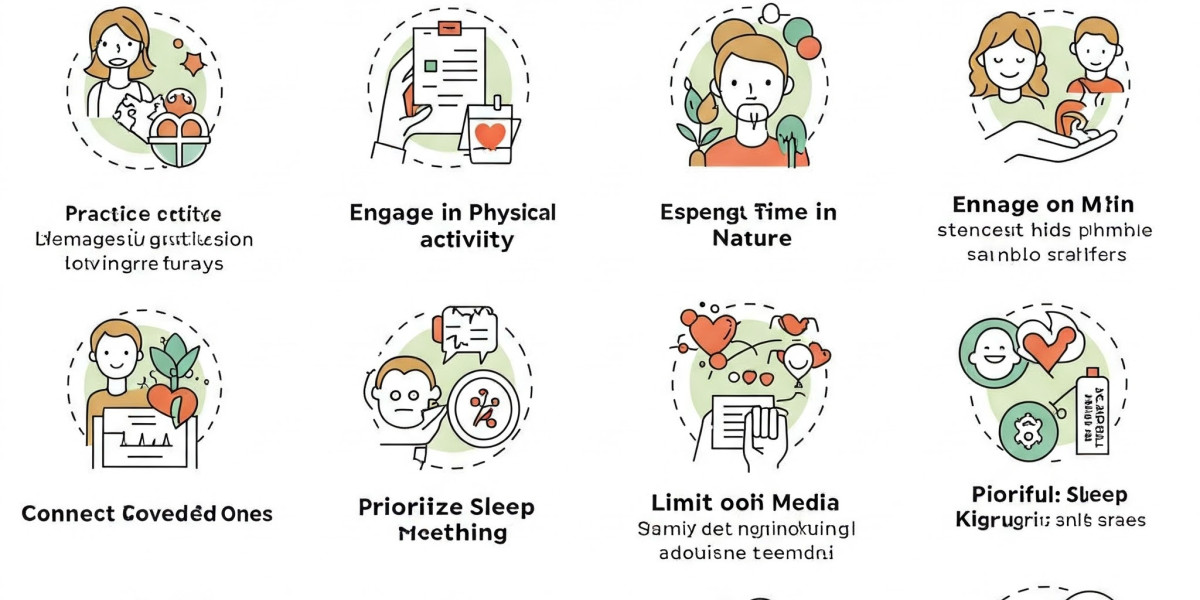Sometimes we ignore signs of stress that have been showing up for a while, other times we push through burnout in hopes of getting to our goal. We think we’re being strong and resourceful when really we’re just out of habit. But more often than not, we can feel better simply by adding a few new habits to our routine.
You don’t have to overhaul your entire life to improve your mental health. In fact, research shows that a few simple habits can have a huge impact on your overall well-being.
Here are ten easy habits to start today that will improve your mental health.
If you’re grateful for something, you’re not anxious about it. Focusing on what you’re thankful for can decrease stress and increase happiness. And you don’t have to find everything amazing to get the benefits.
All you have to do is start your day by thinking of one thing you’re grateful for.
Exercising releases endorphins, which is one of the main reasons we feel good after a workout. But did you know that those endorphins can be released through movement as simple as stretching?
Even if you don’t have time to hit the gym, you can still move your body in a beneficial way. Find a way to get your blood flowing for 20-30 minutes a day. You’ll feel better and you’ll be less stressed.
When you feel like your mind is racing, try focusing on your breath. Your mind wanders, but your breath is always present. And mindful breathing helps bring your attention back to the present.
Try this: Inhale for 4 counts. Hold for 4. Exhale for 4. Hold for 4.
Repeat for 2-5 minutes.
Exposure to blue light from our devices stimulates our brains and keeps us up later into the night. And the constant stimulation and comparison can contribute to anxiety, loneliness, and low self-esteem.
Limit your screen time. Turn off notifications. Schedule phone-free times during the day.
Your brain and gut are connected, which means what you eat has a big impact on your mental health. Make sure you’re getting plenty of foods that fuel your brain, like leafy greens, berries, nuts, fatty fish, and fermented foods.
Social connections are vital to our mental health. We’re wired for connection, and having meaningful relationships with others will improve your emotional resilience.
1. Show Up for Your Loved Ones
Feeling stressed or anxious can make you want to hide away, but that’s the worst thing you can do. Instead, reach out to a friend just to say hello. Schedule a weekly coffee chat with a loved one, or find a local group or community that meets regularly. If you’re able, volunteer for a cause you care about.
7. Prioritize Sleep.
Getting enough restful sleep is vital to our mental health. When we don’t sleep well, we’re cranky, anxious, and have trouble concentrating the next day. On the flip side, prioritizing our sleep is an investment in our mental health.
Try this: Create a calming routine that helps you unwind before bed. Turn off screens an hour before you get in bed. Try reading in bed or listening to soothing music before you turn out the lights.
8. Set Daily Intentions.
When we start our day with a clear intention, we’re more present and aware, which helps us prioritize what’s most important. We’re also less likely to waste time on things that don’t serve us.
Try this: Each morning, ask yourself what you want to feel or accomplish that day. It doesn’t have to be a big goal. You could simply set an intention to feel kind to yourself all day.
9. Declutter Your Space.
Your environment can have a big impact on your mindset. When we feel calm and clear about our space, we feel calm and clear about our thoughts.
Try this: Take 10 minutes to tidy up one area of your home. Even if you just choose to declutter your desk or your nightstand, or give your inbox some attention, you’ll feel the benefits.
10. Be Kind to Yourself.
When we’re hard on ourselves, it’s difficult to feel good about ourselves—or to see our best side. Practicing self-compassion is an essential part of mental health. When we’re gentle with ourselves, we’re more likely to forgive ourselves for our mistakes. We’re also more likely to stay present and engaged in the moment.
Try this: When you catch your inner critic, pause to reframe the thought. For example, if you find yourself thinking You’re so stupid for making that mistake, you could respond with something like, I see, but that’s just a habit now. I’m going to keep trying to learn. When you practice self-compassion, keep at it. Talk to yourself like you would talk to a friend. Celebrate your wins, no matter how small. And when you come across your latest gaffe, do your best to not beat yourself up about it. Instead, offer yourself the same kindness you would offer someone you love.
Putting It Together: Small Steps, Big Impact.
When we’re feeling mentally healthy, we don’t feel like we’re jumping hurdles or climbing mountains—we simply feel good. You can cultivate that feeling in your own life, even if you’re not ready to run a marathon or jump out of an airplane. Here are some ways you can weave these habits into your daily life.
Time of Day Morning: Gratitude journaling, intention setting, light stretching Midday: Healthy lunch, short walk, social check-in Afternoon: Mindful breathing break, screen-time pause Evening: Declutter a small space, reflect on your day, prepare for restful sleep.
Remember, you’re not aiming for perfection. If you miss a day, don’t beat yourself up. Just get back to these habits as soon as you can.
Start with one or two, and then add more! Your future self thanks you!
Want to actually put it together? I can help you turn that list into a nice, downloadable PDF, social media posts, or something more tailored to either age group or lifestyle (students, busy people, parents, etc).







